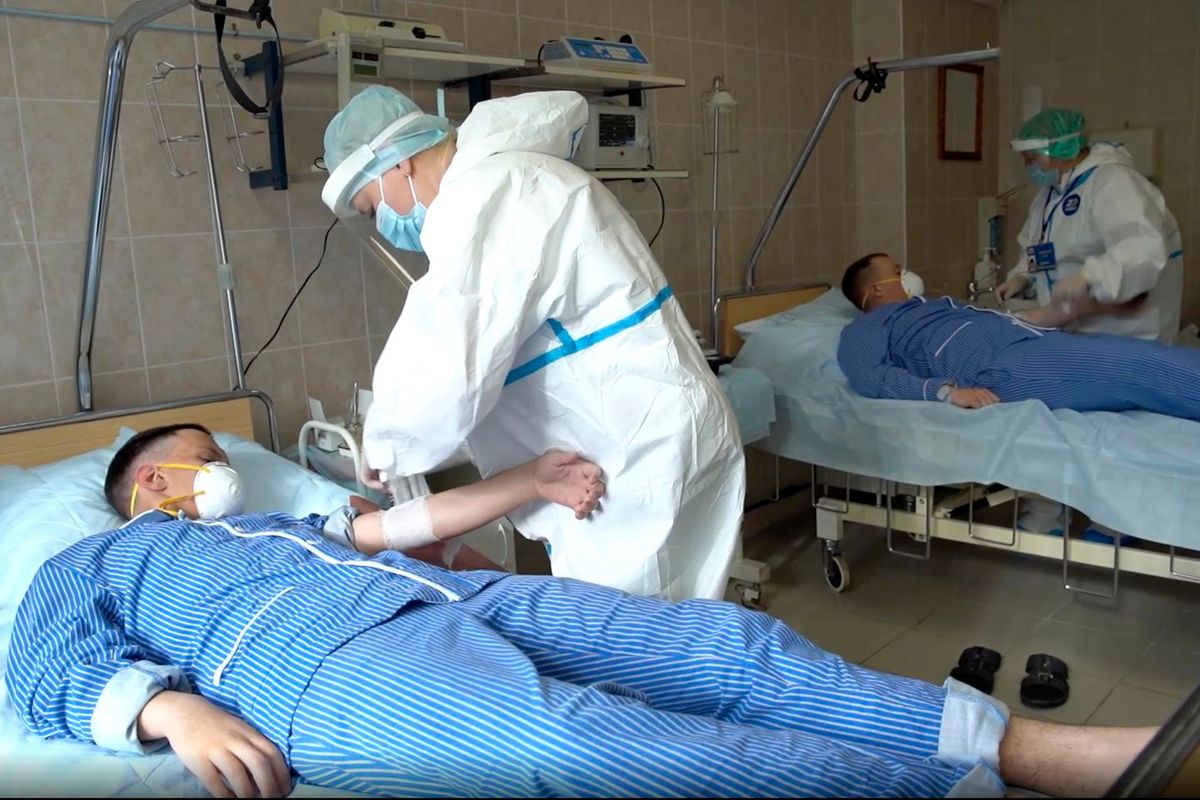Russian vaccine becomes the first coronavirus vaccine to be approved, but concerns linger over rushed testing process

A few minutes every morning is all you need.
Stay up to date on the world's Headlines and Human Stories. It's fun, it's factual, it's fluff-free.
After less than two months of human testing, a Russian coronavirus vaccine became the first to be granted regulatory approval, President Vladimir Putin announced on Tuesday.
“It works effectively enough, forms a stable immunity and, I repeat, it has gone through all necessary tests,” said Putin at a cabinet meeting, adding that his own daughter had volunteered to receive the vaccine and felt fine afterward.
The vaccine, named “Sputnik V” after the world’s first satellite which was launched by the Soviet Union, was labeled by Putin as the “first, very important step for our country, and generally for the whole world.”
However, Putin’s announcement comes amid international caution against cutting corners in vaccine development efforts in favor of gaining prestige or political brownie points.
Concerns over the Russian vaccine’s speedy development and high-risk approval quickly arose as developers of the vaccine have yet to complete clinical trials. Usually, only about 10% of clinical trials are ultimately deemed to be successful.
Representatives of the World Health Organization (WHO) said that any vaccine will need to undergo rigorous safety reviews before earning their endorsement.
“We are in close contact with the Russian health authorities and discussions are ongoing with respect to possible WHO pre-qualification of the vaccine,” said WHO spokesman Tarik Jasarevic.
In their efforts to develop a vaccine against COVID-19, Russian developers have been notoriously secretive about their data and the international science community has noticed a lack of published information about any late-stage testing.
According to a comprehensive list by the WHO of ongoing vaccine development trials, there are no Russian vaccines that have reached large-scale Phase III trials.
Despite this, Putin attested that the vaccine developed by the Gamaleya Institute in Moscow is safe and effective against the COVID-19 virus.
“I know that it works quite effectively, forms strong immunity, and I repeat, it has passed all the necessary checks,” he said.
Russian business conglomerate Sistema declared that it expects to begin mass production of the vaccine by the end of the year.
Government officials have also said that administration of the vaccine to health care workers and teachers could begin on a voluntary basis as early as September. They also expressed their intention to kick-start mass vaccination efforts in Russia by October.
The scientists behind the contentious vaccine defended the speed of their development process, saying that the platform used for the vaccine had been tested in earlier vaccine trials to treat other diseases, such as Ebola.
Kirill Dmitriyev, the head of the Russian Direct Investment Fund, denounced “coordinated and carefully orchestrated media attacks” that attempted to “discredit” the Russian vaccine.
“We should leave politics behind and enjoy this moment,” said Dmitriyev. “We are not forcing this vaccine on anyone.”
He also said that 20 countries had made “preliminary applications for over one billion doses” of the vaccine, before adding that clinical trials were expected to start in the United Arab Emirates and the Philippines.
The Philippine government released a statement on Tuesday saying that it “stands ready to work with Russia on clinical trials, vaccine supply and production, and other areas deemed practicable by relevant Philippine and Russian agencies to address this global health emergency.”
Meanwhile, Philippine President Rodrigo Duterte expressed his willingness to participate personally in a public address late on Monday.
“When the vaccine arrives, I can be the first one to be experimented on … If it is good for me, then it is good for everyone,” he said.
Despite these initial signs of promise, both international and domestic bodies continued to urge the Russian government to complete Phase III clinical trials before hastily administering the vaccine to the public.
“There are established practices and there are guidelines,” said WHO spokesman Christian Lindmeier.
The Association of Clinical Trials Organizations based in Moscow made similar appeals to the Russian ministry, noting that Phase III trials involving thousands of participants are typically considered to be essential in observing the vaccine’s effects in a wider sample.
“It is during this phase that the main evidence of a vaccine’s efficacy is collected, as well as information on adverse reactions that could appear in certain groups of patients: people with weakened immunity, people with concomitant diseases and so forth,” it wrote in a letter to the ministry.
Have a tip or story? Get in touch with our reporters at tips@themilsource.com




Comments ()